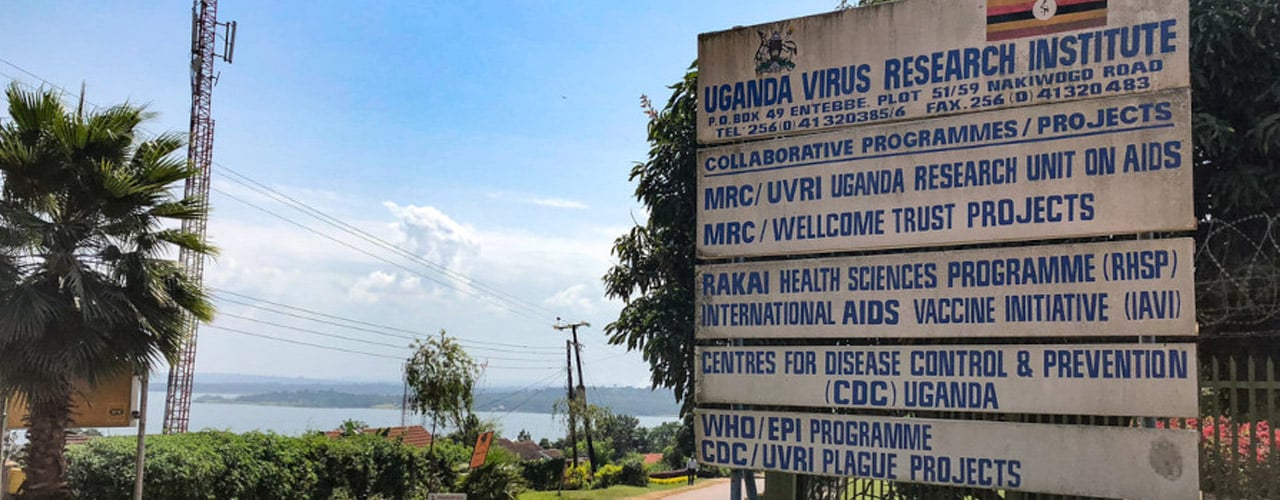IMPALA seeks to test the effectiveness of long-acting (LA) 2-monthly injectable cabotegravir LA plus rilpivirine LA compared to continuation of daily oral dolutegravir-based treatment in adults with a history of sub-optimal HIV control in sub-Saharan Africa. The study hopes to generate data that will support improved access long-acting antiretrovirals with a view to reducing HIV transmission, morbidity and mortality from HIV/AIDS.
IMPALA is a phase 3, open-label, randomised clinical trial that will be conducted across 7 sites in 3 countries: Uganda, Kenya and South Africa. The trial will include 540 virologically suppressed adults who have had a detectable HIV viral load in prior 2 years of taking first-line ART or who have disengaged from HIV care. Qualitative work will be conducted with participants, healthcare workers and with key stakeholders in the HIV treatment field. We will also determine the cost-effectiveness of the LA treatment regimen is in a population at high risk of HIV-related illness and onwards transmission of HIV.
HIV antiretroviral therapy (ART) has saved millions of lives over the last two decades. However, the need to take lifelong daily pills is difficult for many people; the reasons for this include pill fatigue and fear of stigma or violence if ART pill bottles are found. Difficulty in taking daily ART leads to poor control of the virus, drug resistance, weakened immune system, HIV-related illnesses, hospitalizations and deaths. There were 650,000 deaths from HIV/AIDS in 2021 alone.
A promising innovation is long-acting (LA) injectable ART. A novel regimen of cabotegravir LA (ViiV) and rilpivirine LA (Janssen) can be given every 2 months by intramuscular injection and there are only 6 dosing days annually compared to 364 with oral ART. The regimen has been tested in several clinical trials and is now being rolled out in HIV care in the USA, Europe and Australia. However, data from programmatic care settings in sub-Saharan Africa is urgently needed to guide policy for the continent.
This study brings together transdisciplinary investigators from different regions globally to test the effectiveness of the injectable LA ART (2-monthly injectable cabotegravir + rilpivirine) compared to daily oral dolutegravir-based ART in adults with a history of sub-optimal HIV control in sub-Saharan Africa. The study is being coordinated through the MRC/UVRI-LSHTM Uganda Research Unit in Entebbe Uganda.
This study brings together transdisciplinary investigators from different regions.
Coordinating Centre Team
- Dr Fiona Cresswell – Chief Investigator
- Dr Eugene Ruzagira – Principal Investigator, Uganda
- Victoria Tumusiime - Trial Manager
- Dr Claire Norcross – Clinical Research Fellow and acting co-Lead
- Dr Ubaldo Bahemuka – acting co-Lead
- Dr Geofrey Kimbugwe – Head of Compliance
- Ayoub Kakande - Head of Data Management
- Charles Ogwang – Lead Trial Monitor
- Dr Daniel Grint – Statistician
- Onesmus Kamacooko - Statistician
- Paddy Kafeero – Data manager
- Hedrine Akhodia - Grant manager
- Dr David Lawrence – Social Sciences Lead
- Dr Agnes Ssali – Social Sciences
Grade A Hospital Entebbe
- Dr Eugene Ruzagira – Site Principal Investigator
- Dr Ubaldo Bahemuka – Study Coordinator
- Dr Phiona Nabaggala - Study Pharmacist
Infectious Diseases Institute Uganda
- Dr Noela Owarwo – Co- Principal Investigator IDI
- Dr Eva Laker - Co- Principal Investigator I IDI
Joint Clinical Research Centre Uganda
- Dr Henry Mugerwa – Site Principal Investigator JCRC Lubowa
- Dr Gilbert Ategeka – Site Principal Investigator JCRC Fort Portal
Centre for the AIDS Programme of Research In South Africa
- Dr Nigel Garrett – Principal Investigator South Africa
- Dr Sharana Mahomed - Site Principal Investigator CAPRISA
Desmond Tutu Health Foundation, South Africa
- Dr Sheetal Kassim – Site Principal Investigator DTHF
University of Nairobi, Kenya
- Dr Loice Achieng Ombajo – Site Principal Investigator University of Nairobi
Havard University
- Dr Ruanne Barnabas – Cost-effectiveness Lead
- Dr Jesse Heitner - Cost-effectiveness
Janssen Team
- Dr Fafa Addo Boateng – Director, Data and Evidence Generation
- Dr Ingrid Eshun-Wilsonova – Study Responsible Physician
- Dr Fridah Mwendia - Study Responsible Scientist
- Lynne Klasko-Foster - Evidence General Program Manager
- Stanislav Meshcheryakov – Global Trial Lead
- Dr Idahosa Awhonukeh – Project Lead
The phase 3, open-label, randomised clinical trial will be conducted across 7 sites in 3 countries: Uganda, Kenya and South Africa. The trial will include 540 virologically suppressed adults who have had a detectable HIV viral load in prior 2 years of taking first-line ART or who have disengaged from HIV care. The study will not test for baseline HIV resistance mutations in line with local practice.
When compared to continuation of daily oral dolutegravir-based ART, our objectives in the randomized clinical trial include:
- To compare rates of virological suppression between LA CAB/RPV and dolutegravir-based oral ART at 12 and 24 months
- To describing the impact of injectable ART on the immune system and HIV-related disease
- To ensure switching to 2-monthly cabotegravir/rilpivirine is safe and tolerable.
- To explore lived experiences of LA ART, whether injectable ART improves health-related quality of life and to assess treatment preference.
- To examine cost-effectiveness of LA ART in people living with HIV who have struggled with HIV control with current standard of care.
- To assess treatment acceptability by different stakeholders e.g., study participants, healthcare workers, donors, Ministries of Health.
This is a collaborative study with Janssen.







